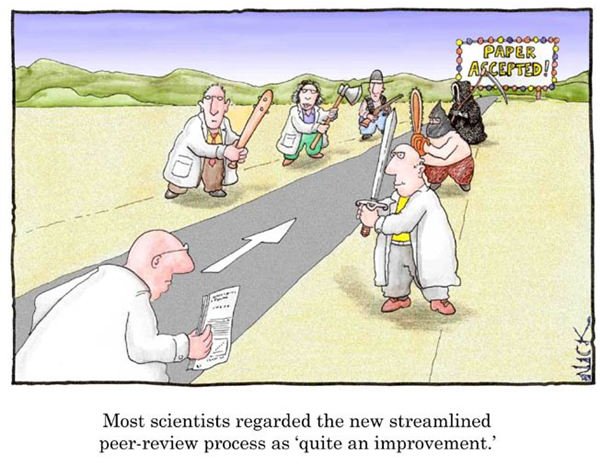What Should a Peer Review Include? A Discussion of the Components of the Peer Review Process
Introduction:
In this article, I will define a peer review, discuss its uses and analyze its components. In other words, you will find answers the following questions:
- What is a peer review?
- Why is a peer review necessary and what are its uses?
- What should a peer review include?
photo credit: commons.wikimedia.org/wiki/File:PR_icon.png
What is a Peer Review?
A “peer” is someone who is equal to you in knowledge, expertise and status. A “review” is an appraisal, a revaluation or a re-visiting of your work.
A peer review is thus an appraisal of the strengths and weaknesses of your proposal, paper or project by someone who is as good as you are (or better) and who works in the same area as you. Traditionally, peer reviews may be of two types: anonymous or open. A truly anonymous peer review is when you don’t know the reviewers who will evaluate you. In turn, your reviewers don’t know whose work they are looking at. An open review is when the identity of the reviewer and the reviewed are open to each other. Both types have their advantages and disadvantages.
A peer review is a process that has become an integral part of some professional activities, especially those subjects of study that require a degree of specialization and expertise from their practitioners. Fields of knowledge such as science, medicine, education and academia need people who focus on and gain expertise in small, specific areas within the large body of material in their subject.
If you belong to any of these fields, it is likely that you will be subjected to the process of a peer review. Sooner or later, you will also be asked to lend your expertise and participate in a peer review of a colleague’s work.
Why is a peer review necessary and what are its uses?

If you write an essay for publication in an academic journal, it will probably go for a peer review before it is published.
If you are interested in conducting a scientific research, you will probably have to go through the peer review process before your project is accepted.
A peer review may be instituted as a step taken before authorizing a grant; as a means of quality control, bid to improve standards; as part of an evaluation of an employee’s performance or even to check what other experts feel about the viability of a plan before it is adopted for implementation.
Although there have been many critiques of the value of a peer review, it cannot be denied that the process has its benefits. When you are doing cutting edge research, require a grant so that you can work on a project, or even if you’re a teacher who has instituted a new teaching method in your class, a peer-review helps the authorities measure–at least in part–the merits of your work.
A peer review can validate your ideas and make them creditable to the expert community of your subject. It can identify the lacunae in your research and suggest ways in which you may improve it. A peer review process may also bring forward duplications you may have inadvertently made or oversights in neglecting to include research that has already been conducted within the purview of your project.
photo credit: nepachem.blogspot.com
What Should a Peer Review Include?
Because it is used in so many different areas of operation and in so many ways, there cannot be a standard description of what a peer review should include. Having said that, because it is by definition a critical appraisal, there are some essential elements all reviewers should remember to include in their peer reviews. These are:
- What are your honest opinions about this work? Are you enthusiastic about it? Do you think it works for you?
- In your expert opinion, is this an original piece of work that will add to the existing body of knowledge in your field?
- Has the author / professional exhibited adequate knowledge and expertise in the subject? Does the work show awareness of the existing research and methodology? Is the literature review complete?
- What are the specific elements of this paper, project or proposal that appeal to you?
- What are its particular strengths and merits? What are its weaknesses?
- What specific sections or areas do you think need improvement?
- What are your recommendations for this paper or project or activity?
Conclusion:
While I cannot give you an easy format as to what a peer review should include, the above should serve as an adequate guideline.
When you write a peer review, you must remember that you have been asked because of your proven specialization in your particular field. The authorities who ask you for a review want your individual, unbiased opinion as a professional.
You will sign the review with your name and therefore, it should consist of your considered and consolidated views notwithstanding what others believe or might say.
References:
Ayres, Matt; “How to Write a Peer Review;” December 2006 at dartmouth.edu/~mpayres/teach/HowToReview.pdf: This is an interesting article on how and when to write a scientific peer review.
Wiegers, Karl E. Peer Reviews in Software: A Practical Guide. Addison-Wesley, 2002. This book will make a wonderful reference for how peer reviews can be used in industries and professions.
